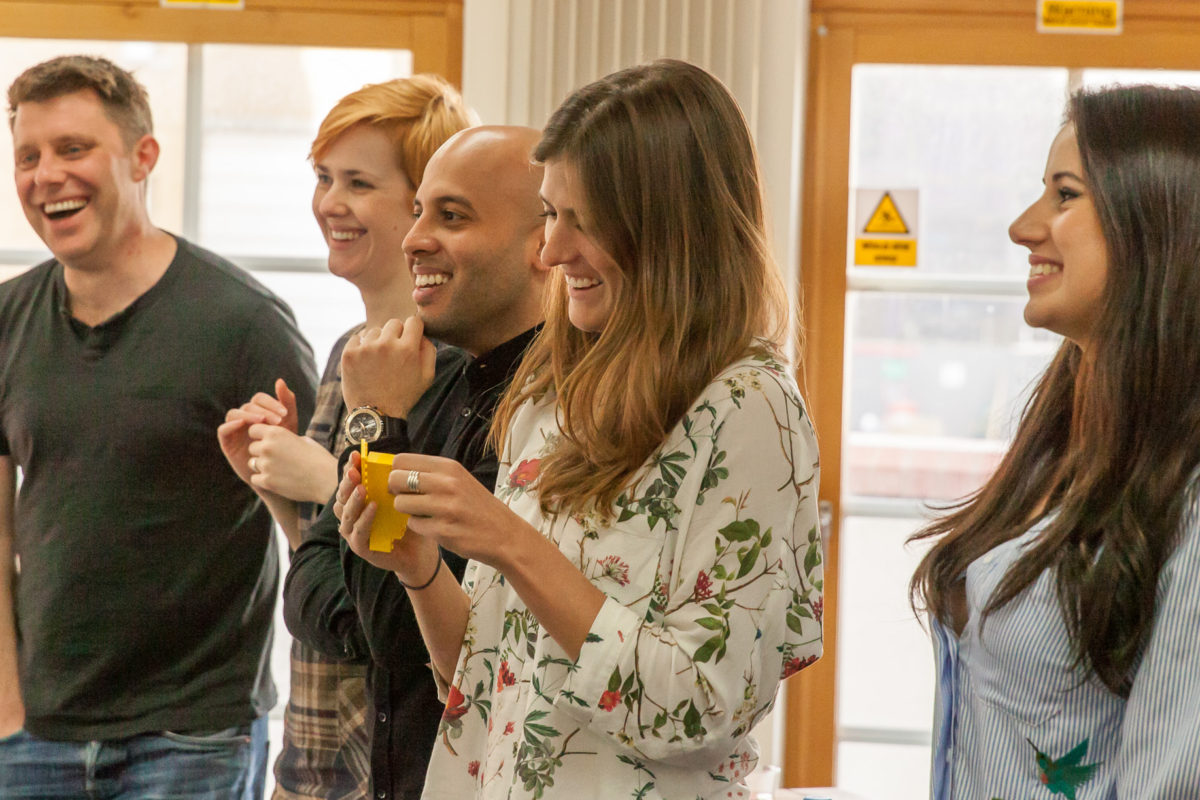
About How
Collaboration has become a 21st century buzzword, but are we really recognising its strategic importance? Solutions to complex problems can be achieved more quickly and competently if knowledge, skills and resources can be pooled and shared across our teams (CIPD, 2017). Don’t forget… not only does team collaboration enhance day-to-day productivity, it also helps to develop strong working relationships, critical for wellbeing.
Lets build effective collaboration
Before you read any further, take a second to reflect … are your people managers encouraging strengths-based collaboration? If ‘collaborative working’ simply means firing tasks and questions across the office or squeezing in brief (and often uninspiring) team meetings every now-and-again, the likely answer is no.
Due to intense pressures and continual deadlines, our stressed and overloaded managers may feel unable to connect with their team regularly and delegate tasks more thoughtfully. This means that jobs become more difficult and less enjoyable, performance slows, and motivation falls.
Help make collaboration simple for teams and managers
25% feel their strengths and weaknesses are overlooked by their managers and 40% of these people feel disengaged at work. How can we expect to achieve and succeed with such disconnected and unhappy teams?
Our strengths-focused Performance Motivation programme can help your people managers recognise the diverse range of strengths across their team. They will learn how to collaborate more intelligently by aligning tasks with strengths, skills and experiences as much as possible, to boost motivation and wellbeing and empower teams to achieve the best results.
We’ve developed a series of six 45-minute workshops, teaching people how to apply their strengths in different workplace scenarios. They can be delivered online for up to 500 people, face-to-face for smaller groups or in Train-The-Trainer format. That’s not all… our Performance Motivation Conversation Mat is a self-facilitating tool designed to open group discussions and tackle difficult topics as a team, with immediate impact on results.
Reignite that sense of ‘team’ now
Want more? Check out our article, drop Eleanor an email at ea@baileyandfrench.com or call us on 01273 830830.
Don’t hesitate any longer… start building collaborative teams.
Happy collaborating!
P.s. We’re looking forward to speaking at a British University’s Finance Directors Group Conference on 17th April, sharing some of our innovative tools and strategies that support people’s wellbeing and resilience in the workplace…come and take a look.

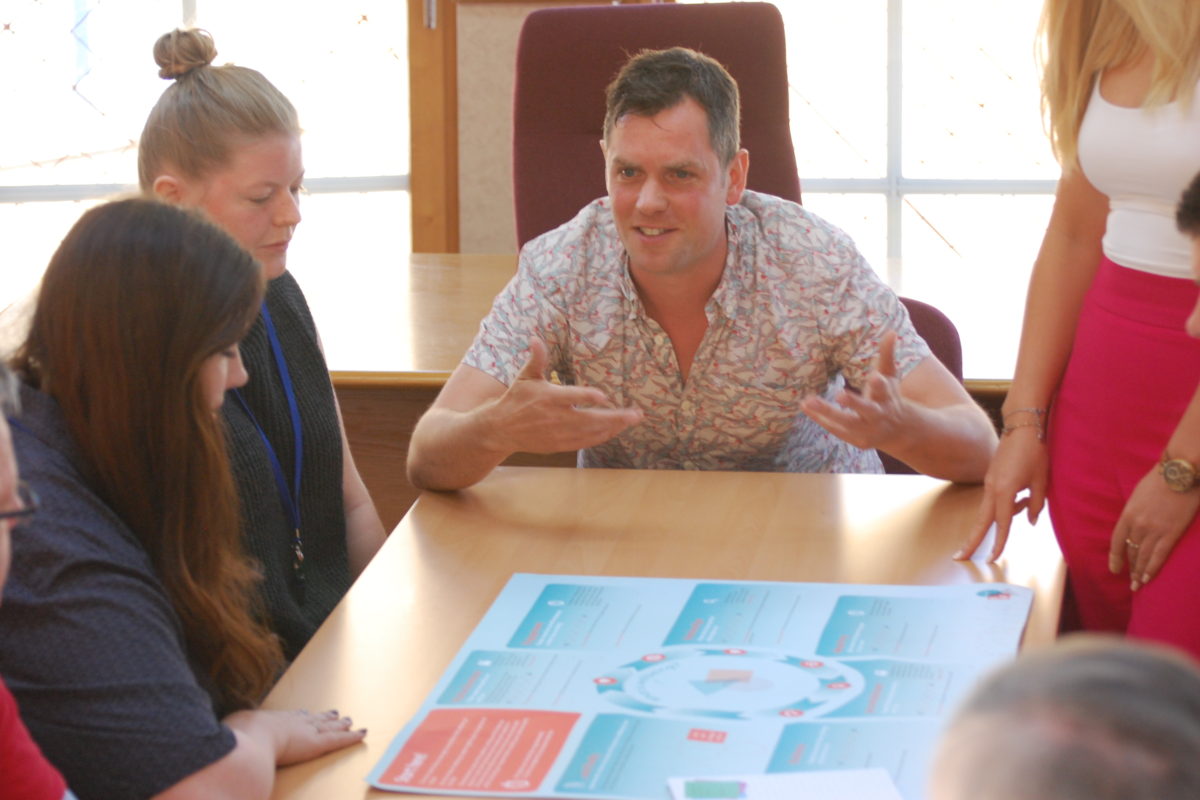
About Got
Got a Wellbeing Week coming up? Don’t know where to start or what activities to offer? Want to do something different with a real long-term impact?
Wellbeing is front of mind for many organisations, using Wellbeing Weeks/Months as a way to engage people and build awareness. However, coming up with the activities and promotional events that are impactful and cost effective can be difficult.
As speakers and specialists on the topic of emotional and psychological wellbeing, we can support your Wellbeing Week in a range of ways – including delivering ‘drop-in’ style workshops designed around the pillars of positive psychological wellbeing to enable flourishing and thriving (i.e. PERMA+R model, for any positive psychology geeks out there!). We have something to suit every budget and agenda.
Speaking and Mini-Sessions
• Interactive Speaking Presentation: Introduce the PERMA+R model that supports flourishing and builds resilience. Includes a quick exercise around the key foundations of wellbeing and practical tips to strengthen our own and others’ engagement and wellbeing. See us in action!
• Wellbeing Team Conversations: Facilitated workshop working around the Wellbeing Conversation Mat, groups are encouraged to articulate what each pillar means to them, how they experience it at work and at home, and defined actions to strengthen wellbeing for all. These can be delivered for small or large groups (up to 200) and usually take around 2-3 hours.
Workshop Series
Workshops are 45mins long and can be run simultaneously or back-to-back throughout the day. People have the opportunity to learn the skills and techniques to support each pillar of positive psychological wellbeing:
• Sustaining Positive Emotions: This session explores the differences between ‘happiness’ and ‘wellbeing’. We look at how happiness contributes to wellbeing, and the benefits of cultivating positive emotions.
• Creating Engagement: In this workshop, we discover some of our core ‘strengths’ – things we excel at and are energised by. We also explore Mihaly Csikszentmihalyi’s concept of ‘flow’ – a state of ‘losing ourselves’ in a task – which has a positive effect on our wellbeing, and most often occurs when we use our strengths.
• Developing Positive Relationships: This workshop explores the importance and benefits of relationships at work. Based on the work of Jane Dutton, we explore three methods – trust, task enabling and respectful engagement – to build ‘high quality connections’.
• Finding Meaning: This session is the deepest and most thought-provoking of the series, exploring what makes life worthwhile. In line with the work of Viktor Frankl, we look at ways to experience and create purpose in our lives.
• Encouraging Achievement: In this session, we look at the benefits of an optimistic mindset, and how this can be developed to increase our sense of achievement
• Building Resilience: This session draws our learning together to relate it specifically to stress. We look at the neuroscience of threat, and how we can minimise our negative emotions and behaviours in difficult situations.
We also offer a range of products and tools, including Wellbeing Notebooks and Conversations mats. To purchase these directly via our online shop click here.
Our products and workshops are a proactive approach to support wellbeing that gives people the skills and techniques so they are better equipped to handle all of life’s challenges. Based on the PERMA+R model of wellbeing we empower people to be their best selves and flourish and thrive.
For more information on how we can support wellbeing more broadly email us at info@baileyandfrench.com or call +44 1273 830 830.

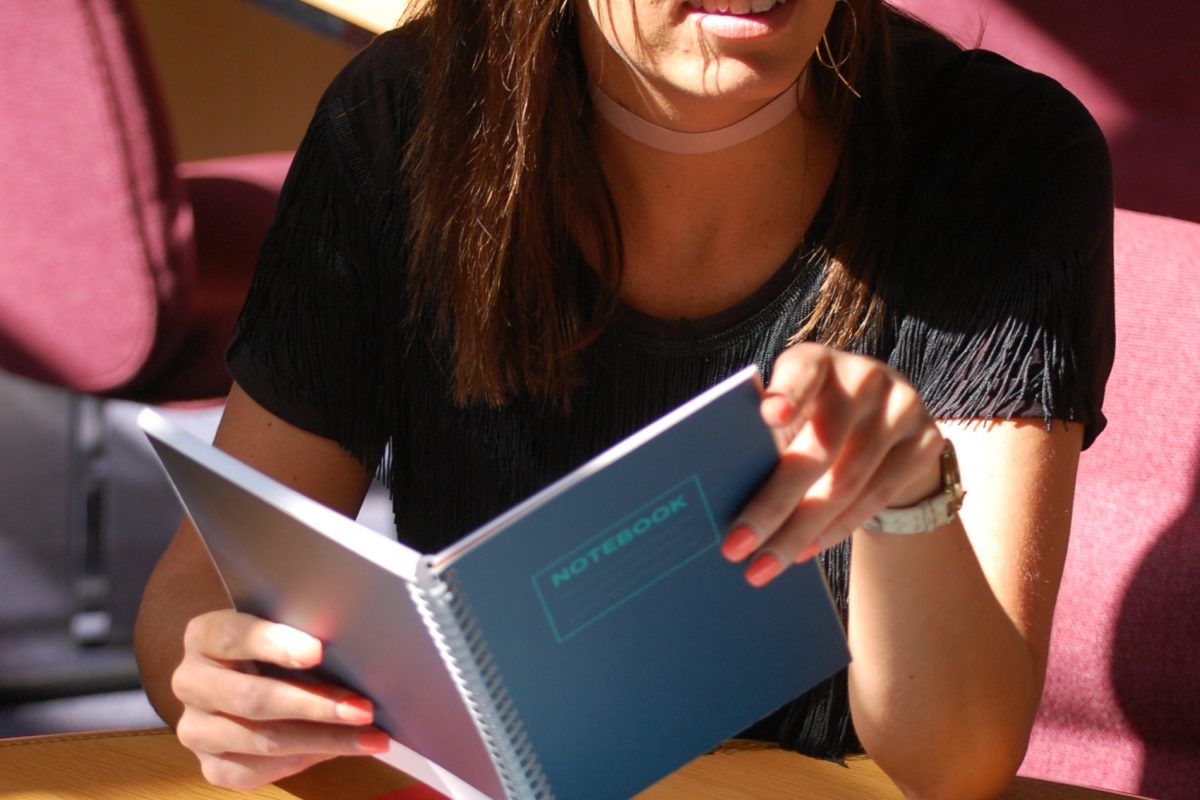
About Got
Got a Wellbeing Week coming up? Don’t know where to start or what activities to offer? Have you got a limited budget?
Wellbeing is front of mind for many organisations, frequently starting with a Wellbeing Week to engage people and build awareness. However, coming up the activities and promotional events that are both impactful and cost effective can be difficult.
At Bailey & French we have a range of tools and workshops to support all needs and budgets, from simple take-away Wellbeing Notebooks to ‘drop-in’ sessions designed around the PERMA+R model of wellbeing. One easy and cost effective approach is to offer our Wellbeing Conversation Mats and/or Notebooks.
Wellbeing Conversation Mats
• Simple, self-facilitating A1-sized table Conversation Mat designed to be used by groups of up to 12 people
• Provides a simple and safe platform for engaging teams and groups around the key foundations that impact wellbeing
• Opens with, ‘What is wellbeing?’ and moves through each of the PERMA+R foundations in turn
• Can be done in any space – only needs a table, pens and participants
Wellbeing Notebook
• Notebooks can be ‘gifted’ during Wellbeing events or workshops
• Fun and insightful, with reflection prompts on each page so learning becomes part of every day
• Packed with interactive activities, reflection questions and practical tasks, designed to keep wellbeing front of mind
• Encourages individuals and teams to take regular action for their own wellbeing
To purchase the Wellbeing Conversation Mats and Notebooks directly via our online shop click here.
We also offer a range of speaking events, facilitated sessions, and workshops which can be stand-alone or run as a series of 45min drop-ins throughout the day. For more information click here.
Our products and workshops approach wellbeing in a proactive way, giving people the skills and techniques so they are better equipped to handle all of life’s challenges. Based on the PERMA+R model of wellbeing, we empower people to be their best selves and thrive every day.
For more information on how we can support wellbeing more broadly email us at info@baileyandfrench.com or call +44 1273 830 830.

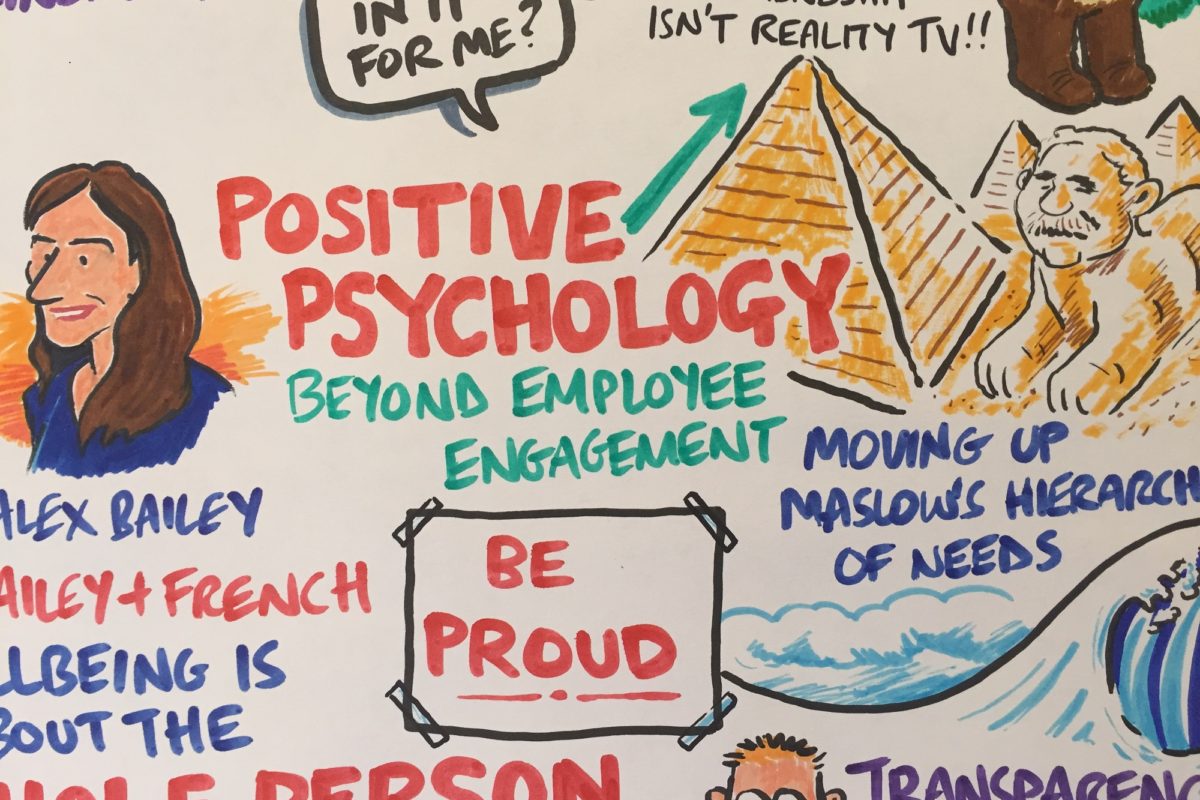
About CIPD
Alex Bailey, of Bailey & French, talks at the CIPD Sussex Branch Conference, Thursday the 14th September -‘The Future of Work is Beyond Employee Engagement’.
Alex introduces the HR Innovation Curve, “designed to show exactly where we need to be focusing our attention if we want to be our best, most innovative selves and build the best organisatons we can. It also tells the story of this evolution of needs. In the session, Alex focuses on three points 1) How Wellbeing is more than Employee Engagement, 2) Explores a positive model of Wellbeing that supports that distinction and 3) How we can innovate People functions in the future to really help people flourish at work and beyond.
Enjoy!
For more information on our wellbeing programmes, including our wellbeing conversation mat, workshops and notebooks, email us at info@baileyandfrench.com or call +44 1273 830 830. To purchase the wellbeing conversation mats and notebooks directly via our online shop click here.

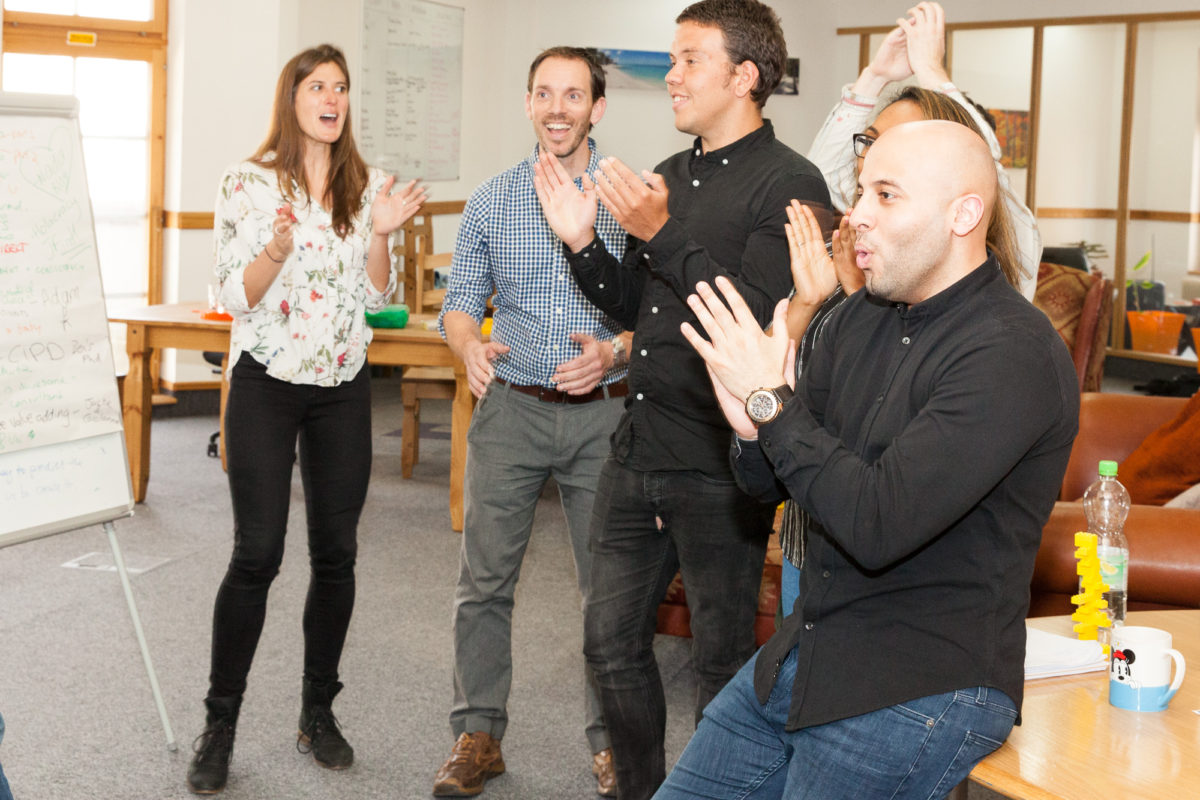
About Are
Are you addicted to work? Another reason to increase personal accountability for wellbeing at work.
Over the past ten years the focus on employee engagement and improved leadership has meant thankfully many more people are genuinely in roles that play to their strengths, give meaning and purpose, support positive relationships and that ultimately they enjoy.
Me included. I really do love what I do, I use my strengths every single day and get an amazing sense of fulfilment from my work. I constantly have to juggle this love for my work with my other life demands of being a full time working mum to my little ones, remember to feed the increasing menagerie of animals, not forget my family celebrations and tending to my important friendships as well as trying to be a great wife. But I have to admit I get such a rich sense of thriving and flourishing in my work that often I have to reign myself in.
I know I’m not the only one. I often hear people say to me jokingly “it’s easier to be at work” and it resonates. Chatting with other parents this week at the school gates hearing people say how much work they’ve got done now kids are back at school with a big smile on their face. It’s an environment I know, I can influence and can achieve and feel productive and capable, top of my game. I don’t have a nanny, house husband or able parents to support my constant juggling and when one of life’s big challenges comes my way it’s harder than hard to get through it, but we do. And often it’s work that helps me, something constant, something meaningful, supportive work relationships, but above all for me it’s the achievement of moving things forward. I expect it’s something different for everyone depending on what they enjoy most in their work.
The balance to ensure that I am indeed still focusing on other key areas of my life is my responsibility, not anyone else’s. I have my own reminders on my desk, pictures of my kids and their latest masterpieces, yet I still regularly find myself sprinting out of the door to go pick them up on time because I’ve been completely absorbed in another fascinating piece of work. I’ve allowed myself to be completely absorbed even though I’m fully aware that I should be packing up to go.
There is always more work. It will never be finished. At school our kids are constantly taught to stretch and grow in their learning and this is the same in modern L&D approaches in organisations. Everything is a journey full of opportunities and possibilities so it is only us, ourselves, who can determine where we draw the line.
I hear people go on about the hours they do as if it’s always someone else’s fault, yet I know lots of people love being busy, needed, included, required in back to back meetings, it boosts how important people feel about themselves even if it means they are still working late and other parts of their life suffer. It can tip over the edge and have a huge influence on our identity. I also know that our increase in work/life integration is not a bad thing for everyone – I know my crazy working hours allow me to be the best mum I can be by swapping daytime hours for night time or weekend working. And now LinkedIn has a green dot on those online I can see lots of people are indeed working different hours because they choose to also.
So increasing people’s knowledge of what positive wellbeing is, guiding learning of skills to equip us and giving confidence in ourselves to know how and when to balance our life priorities is key. We are only going to be more empowered in work in the future so equipping people to lead themselves effectively and take care of their wellbeing at work is fundamental as a preventative approach for all people in organisations in addition to and alongside the more targeted interventions for those struggling at a crisis point.
Alex Bailey
For more information on our wellbeing programmes, including our wellbeing conversation mat, workshops and notebooks, email us or call +44 1273 830 830. To purchase the wellbeing conversation mats and notebooks directly via our online shop click here.

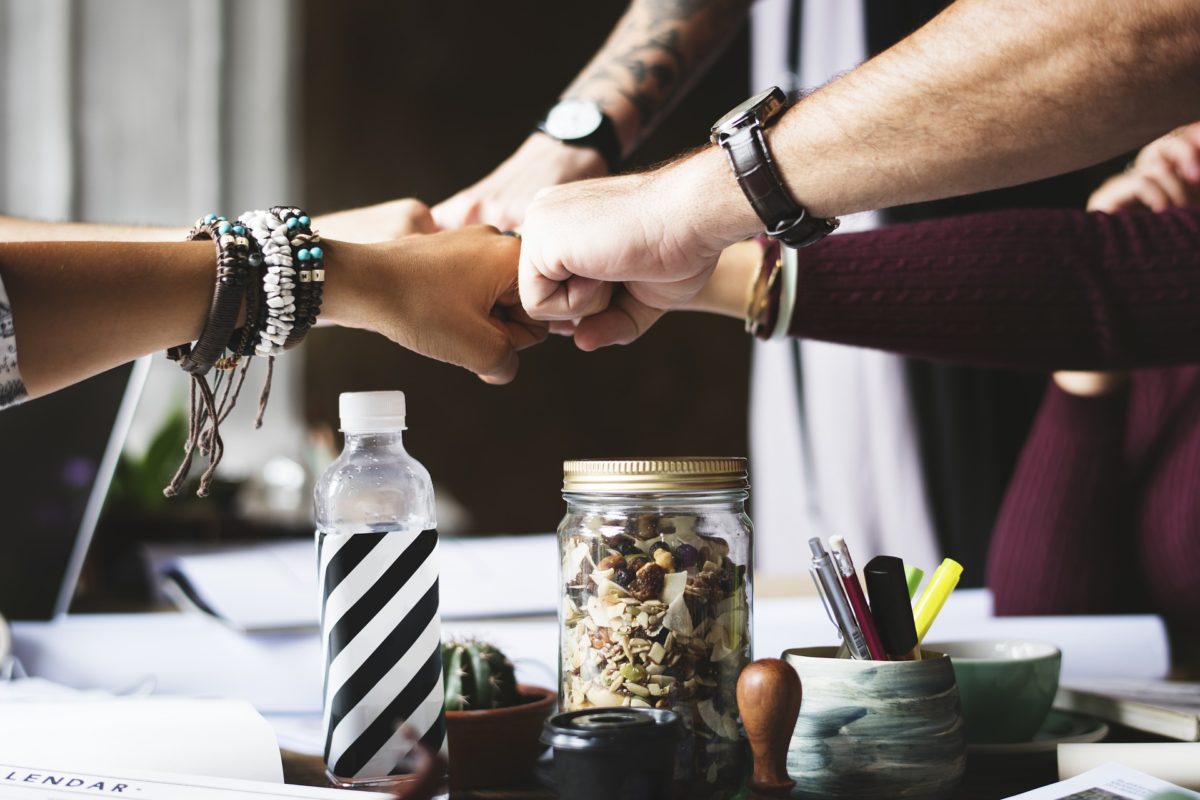
About The
Stress is the leading cause of workplace absence in the UK. In response, ‘wellbeing’ is on the agenda for the majority of people teams (only 8% of organisations say they’re not doing anything to improve employee health and wellbeing). But in reality, many of these programmes focus on physical health and support for those with mental illness, rather than true psychological wellbeing for all people (CIPD, 2016).
For many people professionals, wellbeing is a new area of responsibility, and an addition to an already-heavy workload of existing HR processes and priorities. It is high on the organisational agenda, but often perceived sceptically by people across the organisation, who are focused on the day-to-day tasks of the business, and unconvinced of the value of the activities on offer.
There is frequently a lack of clarity around what ‘wellbeing’ means and what the expectations and outcomes are for programmes – it simply becomes another thing for HR to do, reinforcing their role as the ‘parents’ of the organisation. Programmes repeatedly fall to more junior members of the team, who have a lack of influence and find it difficult to get people on board.
The result is a high workload and confusion around where to start, which can lead to programmes never getting off the ground. Even those that do are less successful than they should be, or unhelpfully lead to a culture of entitlement, where people feel it’s down to the organisation – and the people team in particular – to look after them. There’s a lack of real engagement and a mentality that it’s down to someone else – again, often the people team – to ‘fix’ things.
So, what options do we have if we really want to improve wellbeing within our organisations? Martin Seligman’s PERMA model provides a simple, research-based framework, which we’ve used to create a flexible programme that easily adjusts to fit small single-site organisations, large multi-nationals, and everything in between.
Initiated by a simple conversation mat tool (see this article for more details), it focuses on a series of six wellbeing workshops. At just an hour long, these are easy to fit into the working day – often over a breakfast or lunch – and built around interactive activities to empower individuals to take responsibility for their own wellbeing. These can be run in-person or virtually through online learning – either by the Bailey & French team or by internal champions, who we can upskill through a train the trainer session. Using an innovative preventative approach, they’re interactive and fun – using conversation and reflection to encourage active peer-to-peer learning and exploration – and making wellbeing easy for everyone to understand and apply on both an individual and organisational level.
For more information on our wellbeing programmes, including our wellbeing conversation mat, workshops and notebooks please email us or call +44 1273 830 830.
Amy Parker

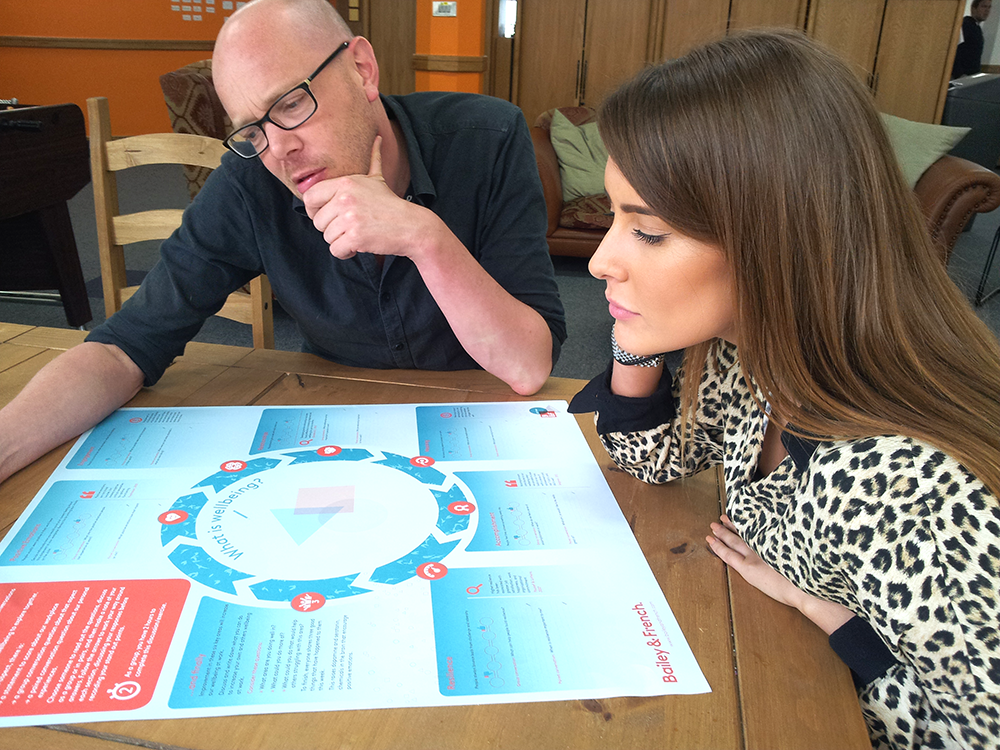
About Let’s
Wellbeing is talked about in organisations a lot, but there is often little on offer beyond physical health programmes and support for those with mental illness. Based on the latest research into wellbeing, this conversation mat helps us explore the five pillars of the ‘PERMA’ wellbeing model, building teams that are more aware of their own and others’ wellbeing, and what can affect it.
These self-facilitating, team discussion tools are designed to focus our attention on building wellbeing at work. Between 3-12 people use the tool to explore what helps us thrive and flourish at work, giving an immediate pulse check and diagnosis of the five pillars to support further action.
These are the ideal tools for small and large-scale team days, providing a simple and fun platform for engaging with individuals and teams. Easy to self-facilitate, each mat can be used by groups of up to 12 and multiple mats can be used in order to cover larger teams, groups or whole organisations. Each mat provides frame-worked discussion topics, encouraging each person to contribute, tackling difficult subjects in a non-judgemental way and empowering people to take action.
To purchase a wellbeing conversation mat simply click here. For more information on our wellbeing conversation mat or any of our other tools please contact info@baileyandfrench.com or call +44 1273 830 830.


About How
Early in my career, a question I was often asked by clients was ‘how can we build the resilience of our people?’. And if I’m honest, I didn’t truly know the answer.
I am exceptionally lucky and fortunate to work with lots of different people and organisations, across a range of industries and counties. Due to the context of work I do, people will openly share examples of the day-to-day stresses and challenges they face, both at work and personally, and how they deal with adversities and failures.
It’s true that there are some people who are by their very nature more tolerant to stress and ‘bounce back’ more easily. However, listening to these stories over many years, and drawing upon my own experiences, it became quite clear that resilience can be learned. Now the question I had to answer was ‘how?’.
My conclusion is that there is no exact formula or winning algorithm that clearly defines how to be more resilient. Rather, I see it as a combination of many things -‘one size does not fit all’ – with us drawing upon different resources depending on the challenges we face. Martin Seligman’s PERMA model gives us a great framework for these – in its own way, each element supports and enables more resilient behaviour. By building awareness and resources to support ‘Positive emotions’, ‘Engagement’, ‘positive Relationships’, ‘Meaning’ and ‘Achievement’ – and learning to maximise each element – we can ‘lead’ ourselves better through times of stress. And these elements work in conjunction with, and build upon each other too – positive emotions help us build relationships, which enable us to be more resilient, which in turn help us experience more positive emotions, and be more resilient, and so on.
As an example, let’s focus on positive emotions (the ‘P’ in ‘PERMA’). Knowing and understanding our emotions, and being aware of how we are feeling and why, means we can recognise when we are experiencing more negative than positive emotions. Negative emotions create a downward spiral that narrows our capacity to learn, problem solve and make decisions. So, making decisions when we are feeling down and despondent can diminish our ability to think creatively and find the right solution when we need it most. Further to this, an interesting piece of research I read recently showed how resilient individuals not only cultivate positive emotions in themselves, but they are also more skilled in eliciting positive emotions in others (Tugade et al., 2013). This in turn helps build a supportive network that aids the coping process.
One thing that is certain is that the world is ever-changing and in a constant state of ebb and flow as we all strive to maintain competitive advantage. Speaking with clients, this is very much a reality and a challenge in today’s modern working world. The consequence, however, is often stressed team members who are disengaged and unhappy. The context is unlikely to change in fact, it’s likely the world of work will become increasingly more dynamic. So, what’s the solution?
Current approaches often target the symptoms, for example offering Employee Assistance Programmes (EAP) or gym memberships. Yet this will not target the cause or solve the issue long-term. We need to be more strategic and preventative, empowering our people through their own and others’ learning and growth so we have the skills needed to be resilient. The world is dynamic and ever-changing, but by building our resilience we can enjoy the ride and be confident in knowing you have the self-awareness and personal resources to weather any storm.
Bailey & French are a team passionate about creating the simple, positive platforms and practical tools that support people to clarify what they truly want to achieve and then do it. We know everyone is busy at work so make sure our interventions are easy to apply, high impact and often self-facilitating. If you are interested in finding out more about how we work with individuals, teams and whole organisations to be more engaged, successful and positive, we’d love to hear from you.
This article on ‘Resilience’ is one of a sequence based on Martin Seligman’s PERMA model of wellbeing. Click on the following links for previous articles, on ‘Positive Emotions‘, ‘Engagement’, ‘Relationship’, ‘Meaning’ and ‘Achievement’.
Grace Walsh
References:
M. Tugade, B. L. Fredrickson and L.F. Barrett (2013). Psychological Resilience and Positive Emotional Granularity: Examining the Benefits of Positive Emotions and Coping and Health
Carver, C. S., & Scheier, M. F. (2002a). Optimism. In C. R. Snyder & S. J. Lopez (Eds.). Handbook of positive psychology (pp. 231-243). London: Oxford University Press.
Kumpfer, K. L. (1999). Factors and processes contributing to resilience: The resilience framework. In M. D. Glantz & J. L. Johnson (Eds.). Resilience and development: Positive life adaptations (pp. 179-222). New York: Kluwer Academic/Plenum Publishers


About ‘A’
An achievement is subjective and can only really be measured by the individual.
So, the effort of getting out of bed each day may be an achievement for some; for others, it may be standing up and courageously saying something out loud in a team meeting, no matter how small the comment; for many of us, maintaining harmony within a difficult relationship, skillfully managing one’s emotions in turbulent circumstances or even writing an article are things we just do or experience on a daily basis – yet do we take stock and celebrate them as real achievements? It’s easy to let these things pass us by and continually fix our gaze to the ‘ultimate’ winning of the pitch, prize or promotion.
The trick is not to compare ourselves with other people; moreover, it is essential not to downplay our efforts or successes we make on a daily basis, but to recognise these moments (no matter how small). Acknowledging these moments will make a huge difference to our sense of self, our inner-confidence and our ability to then serve others as a powerful human being.
So then, how can we recognise our daily achievements?
I will outline two practical things we can do to support this: by turning our appreciation volume up and by setting our own bar (or as regularly practiced in coaching, to realise our own goals).
To set goals that are meaningful and realistic, for both the short and longer term, we must at first have an understanding of our own values that tie in with our higher purpose (as covered in the ‘Meaning’ part of Seligman’s PERMA model). This may take a little time and thought – what is important in our working and personal lives? What things do we really value?
Setting goals fulfil our inner ambitions, give fuel to motivate and provide a sense of clarity to where we want our lives to go in the future. Once the goal is set, we are on the journey: subsequently, every small step towards this goal is the achievements that will eventually propel us to our desired, greater heights.
Remaining positive towards these goals can be a challenge in light of set backs, working with others and confronting the restraints of time, modern technology and busy schedules. At this point, it is helpful to understand Seligman’s other key principles within the PERMA model and know how to cultivate positive emotions, discover what keeps us engaged, find support from having close and authentic relationships and finally to have meaning and purpose to what we do.
Alongside the setting of goals, it is also important to recognise each achievement through mindful appreciation, or as Bryant and Veoff call the “conscious attention to the experience of pleasure.”
This “conscious attention” is taking time to stop and observe, taking notes (perhaps in a gratitude journal) sharing our wins and congratulating ourselves. The more we can do this, the more the state of celebrating our own achievements will become a habit, and we can to smash through the taboo of hiding our achievements for fear of being seen as proud or on top of our game.
So to sum up, an achievement is not just the moment of glory crossing the finish line: it’s taking part in the race. The daily experience of living, loving and sharing what we have to give with the world is something we should continually celebrate – and just imagine a world if we all did.
Bailey & French are a team passionate about creating the simple, positive platforms and practical tools that support people to clarify what they truly want to achieve and then do it. We know everyone is busy at work so make sure our interventions are easy to apply, high impact and often self-facilitating. If you are interested in finding out more about how we work with individuals, teams and whole organisations to be more engaged, successful and positive, we’d love to hear from you.
This article on ‘Achievement’ is one of a sequence based on Martin Seligman’s PERMA model of wellbeing. You can view our previous article on Positive Emotions, Engagement, Positive Relationships, Meaning here.
Adam Webb

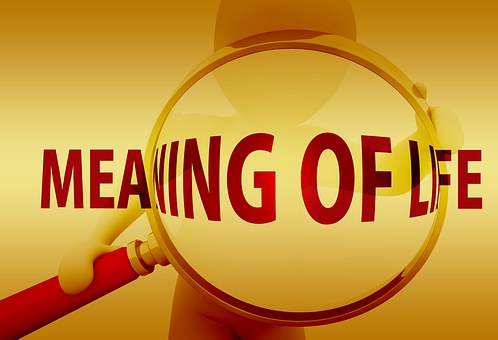
About How
An unnamed telemarketing company had 400% turnover. That’s bad.
The underlying purpose of the company, however, was good. The telemarketers were asking alumni for donations to fund scholarships for students who would otherwise not have the opportunity to attend university, something that they knew mattered and was important. The problem, they realised, was that their telemarketers were so disconnected from this outcome that they saw their job as “harassing people for money”. Not so inspiring.
They tried something novel. They invited a beneficiary student to come in during one of the lunch breaks and talk to a team of telemarketers. She told them about her experience at University so far, and how she wouldn’t have had the opportunity without them.
Over the next month that team increased their received donations by 17% and spent 142% more time on the phones!
Something seemed to be working. More beneficiary students were invited in over lunch, and month on month each team had an opportunity to meet them. The telemarketers now said that they felt they were “helping people to have the opportunity to go to university” and “changing lives for students”. Weekly revenue went up 400%, turnover went dramatically down. How are these results possible without paying £1 more as motivation?1
Economist and author Dan Pink is famous for his theory and ted talk on intrinsic motivation stating that autonomy, mastery and purpose are the fundamental drivers to human behaviour, and have a stronger effect on our actions and results than extrinsic motivation (i.e. monetary reward). He argues that intrinsic motivation, with purpose as a key component, are what drive people to get up in the morning, create, persevere, volunteer. We can get more out of people and increase happiness and wellbeing by supporting these intrinsic motivations.
If we know the priceless value of helping people and employees feel purpose and tap into their intrinsic motivations, why are UK engagement rates still so low? Why are we struggling to empower people to find meaning in their work? Do we lack the knowledge or tools to do it?
I would argue that we know the answer, we’re just not prioritising it. At a cost of 6bn2 to the UK economy, it’s time to step up.
At Bailey & French we are passionate about creating practical tools and programmes that empower people and organisations to explore meaning and increase engagement and productivity at work. Our interventions are easy to apply, high impact and accessible for all people.
Our solutions include consultancy, programme design, facilitation of workshops in person or online through to train the trainer options and self-facilitating tools.
We will be speaking at the CIPD Wellbeing Conference on June 19th, and in the lead up we are publishing a series of articles addressing different aspects of wellbeing. If you are interested in finding out more about how we work with individuals, teams and whole organisations to be more engaged, successful and positive, we’d love to hear from you.
Jackie Todd
1 Harvard Business Review, Managing Collaborative Overload, Adam Grant & Rob Rebele: https://hbr.org/webinar/2017/01/managing-collaborative-overload
2 HR Magazine, Disengaged employees and poor health cost UK economy 6billion
